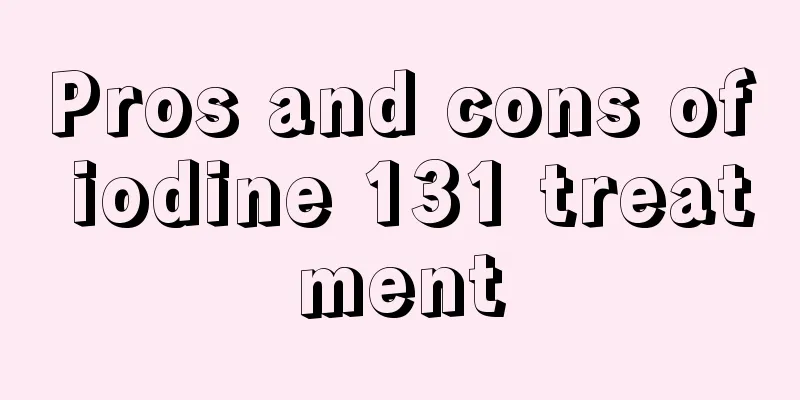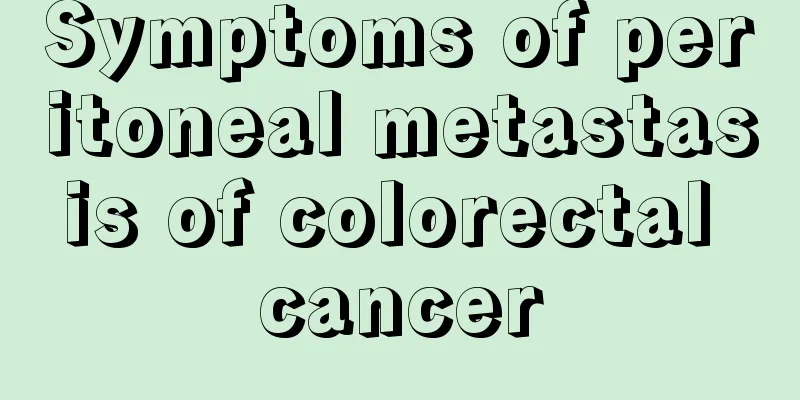Pros and cons of iodine 131 treatment

|
Iodine 131 is a new treatment method specifically for hyperthyroidism. Perhaps many people are not very familiar with this treatment method, and some people have never even heard of it. Therefore, many patients with hyperthyroidism cannot accept this treatment. In fact, this treatment method is a better way to treat hyperthyroidism. It can effectively treat hyperthyroidism and alleviate the condition. Let’s take a look at the pros and cons of this treatment method. Advantages of iodine-131 in treating hyperthyroidism 1. The treatment has precise efficacy, high cure rate and low recurrence rate. Patients generally experience gradual therapeutic effects 2 to 3 weeks after taking the medication, with symptoms and signs beginning to ease and then gradually disappearing, achieving recovery. Some patients who are not cured after one course of treatment can be treated again. 2. Iodine-131 is an oral medication and is a non-invasive treatment. 3. It is simple. The necessary examinations and tests before treatment usually only take 2 days. Patients do not need to be hospitalized and can leave after taking the medicine. After that, you only need to go to the nuclear medicine clinic for a follow-up examination in the 3rd and 6th month after treatment. 4. The cost of treatment is relatively low. Disadvantages of Iodine-131 for Hyperthyroidism Treatment Iodine-131 is a radioactive nuclide with a certain degree of radioactivity, which can radiate certain amounts of radiation to people around you. Therefore, after taking iodine-131, you should be careful to avoid prolonged, close contact with others, especially infants, young children and pregnant women. Some patients may develop hypothyroidism after iodine-131 treatment and require thyroid hormone replacement therapy. 5. Iodine-131 treatment of hyperthyroidism has no effect on growth, development, fertility, or offspring Iodine-131 has been used to treat hyperthyroidism for more than half a century. According to a large number of population statistics, no effects on fertility, growth and development, or offspring have been found, and it does not increase the risk of cancer. In addition, hyperthyroidism itself can lead to infertility or infertility. After treatment with iodine 131-, thyroid function returns to normal and fertility can be restored. |
<<: How to eat every day to gain weight
Recommend
There are three main sites where esophageal cancer is prone to metastasis
There are three main sites where esophageal cance...
Brain thinking training
The brain is the main part of human beings used f...
Colorectal cancer rehabilitation exercise method
Colorectal cancer patients, due to the lower posi...
The harm caused by melanoma to the human body
The early symptoms of melanoma are not very obvio...
How to take care of breast cancer through diet? Is breast cancer a malignant tumor?
Breast cancer is a common cancer disease in life,...
Effects and functions of golden willow tea
Willow of Goldenrod tea is also called money tree...
Having inflammation but already pregnant?
Most women need to have a prenatal check-up befor...
What are the traditional Chinese medicine treatments for acute pyelonephritis?
As we all know, acute pyelonephritis is very harm...
How to use bath essential oil
Proper use of some essential oils when taking a b...
What should I do if I have bloating due to appendicitis? These methods can alleviate
Bloating means that there is too much gas in our ...
What anti-inflammatory medicine should I take for ground-glass opacity
There are many tuberculosis patients in our lives...
What is the best treatment for osteosarcoma
Everyone knows that osteosarcoma not only brings ...
Is it okay if I took a sip of gasoline?
Is it okay to drink a sip of gasoline? Gasoline i...
What are the radiation-proof plants?
Nowadays, technology is becoming more and more ad...
How to use a coffee machine
As the pace of society gradually accelerates, mor...









